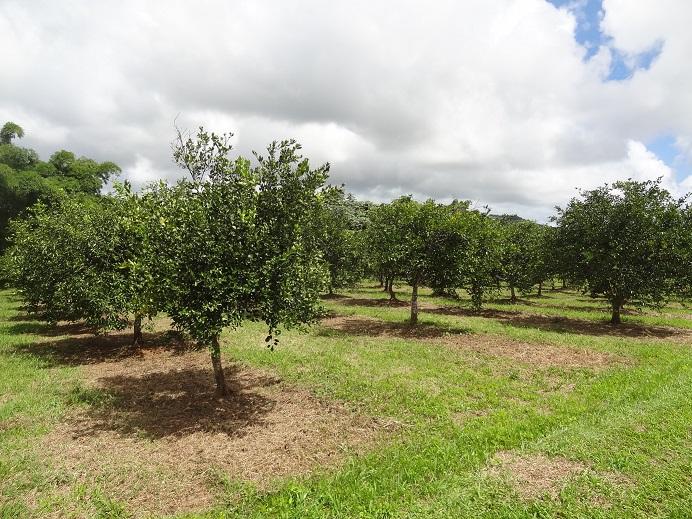- Home
- Worldwide
- CIRAD worldwide
- Projects
- DIVAM project
Diversity and varietal innovation for agriculture in Martinique - DIVAM

© CIRAD
Issues
The citrus and pineapple value chains are very vulnerable to pests and diseases, primarily Huanglongbing (HLB or yellow dragon diseases) on citrus and wilt on pineapple. The volumes produced for the local market remain low, compared to exports. Diversifying production is thus a priority in order to establish sustainable agrosystems in Martinique.
Description
This project is built on the genetic resources held by the INRAE-CIRAD Citrus Biological Resource Centre (BRC), which has more than 1085 accessions (based in Corsica) and the Tropical Plant-Pineapple BRC in Martinique, which has an international collection. These BRCs are both certified NF S96-900.
With its 478 species and varieties, the pineapple collection, which has existed in Martinique for more than 30 years, is the world’s largest bank of its type. These species primarily come from collection operations by CIRAD with its partners in the West Indies, Peru, Venezuela, Paraguay, Brazil and French Guiana. The project aims to protect this precious plant material through in vitro propagation and in greenhouses.
DIVAM also relies on a novel strategy of obtaining triploid and tetraploid citrus hybrids that are highly pest- and disease-resistant. To assess the rootstocks and varieties for these new hybrids, which are potentially more tolerant of HLB and of environmental constraints, it has set up field collections and mother plants in greenhouses. In all, more than 300 trees are currently being assessed.
Preserving heritage varieties and characterizing the citrus and pineapple genetic resources available in Martinique will fuel future varietal innovation. Pre-bred varieties will subsequently be used in participatory breeding operations within the framework of RITA (technical innovation and agricultural transfer network) projects. This will safeguard original citrus varieties within a heritage collection, to conserve original species under threat of dying out due to HLB.
The mycorrhizal status of selected citrus varieties is also due to be characterized using molecular methods (metabarcoding) and histological methods, before testing the effect of inoculation with locally isolated fungus strains on citrus growth and sanitary status.
Expected changes
- Breeding improved citrus varieties will make it possible to offer professionals innovative varieties more suited to different constraints.
- The use of efficient mycorrhizal inoculums and their inclusion in plant production procedures will have been tested in real conditions, to assess the potential gains in productivity.
Expected impacts
- Integrating new citrus species better suited to local biotic and abiotic constraints, along with new agroecological practices, will have contributed to diversified agriculture founded on sustainable, environmentally friendly production systems.
- In terms of plant health, the trials set up will have boosted knowledge of pests and diseases and improved biological control.
Contract partners
- Martinique territorial authority (CTM)
























